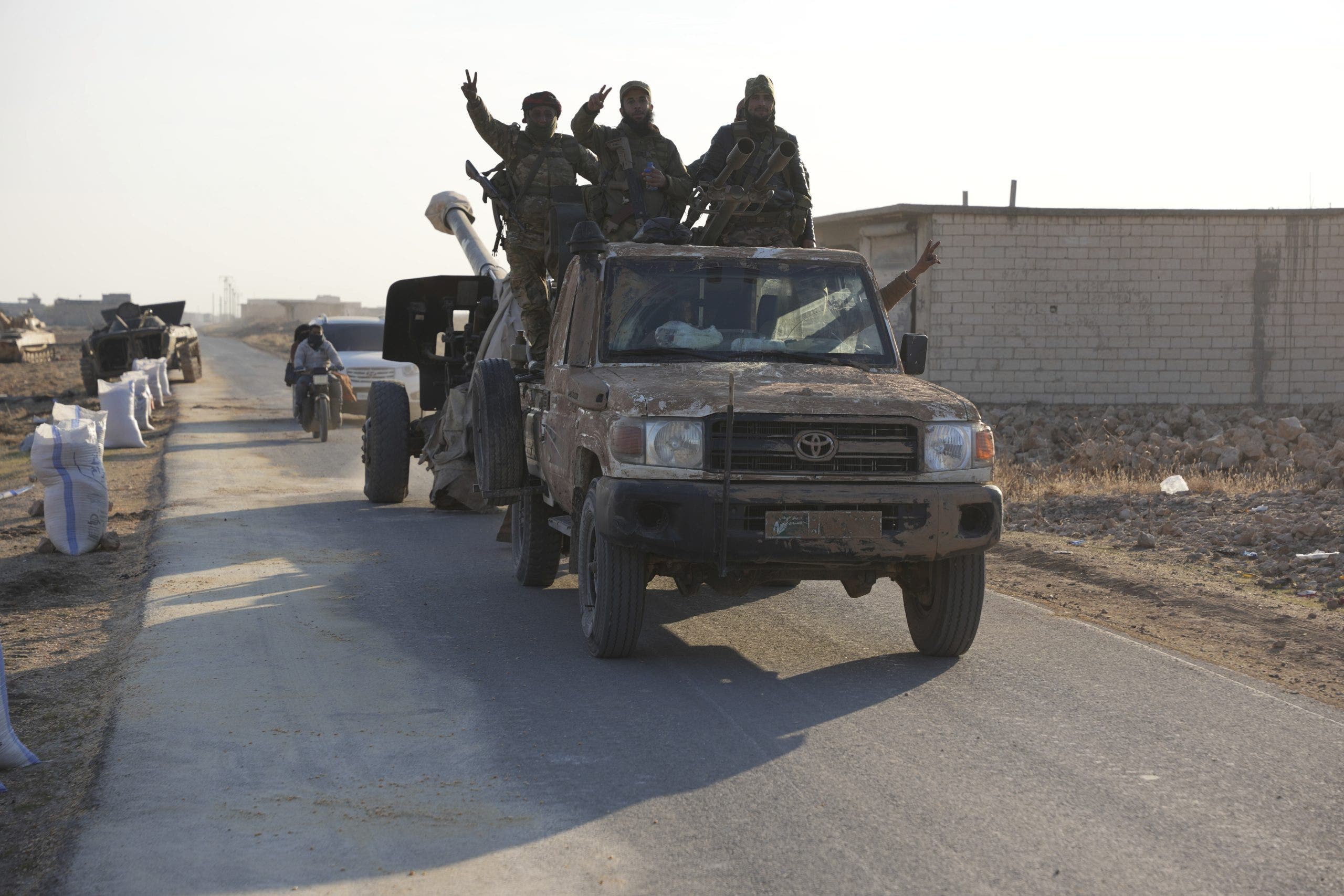The governance record of the Islamist group ruling a province in Syria is mixed, with some instances of strict rule.
The HTS' rule in Idlib could provide insights into how it might govern Syria.

After Bashar al-Assad's downfall, a new government is emerging in Syria, causing uncertainty about whether it will soften its Islamic stance or follow the Taliban's example in Afghanistan.
HTS, a U.S.-designated terrorist group, governed the Idlib Governate in northwest Syria and established its own regime called the Syrian Salvation Government. HTS claimed to have shifted its global Jihadist objectives to a focus on local governance. In Idlib, HTS established a bureaucratic system and various ministries to manage some public services, including public safety.
According to Natasha Hall, senior fellow with the Middle East Program at the Center for Strategic and International Studies, it has ruled with an iron fist there.
In Idlib Province, HTS had around 2 million people under its control at its peak. Its leader, Mohammed al-Golani, tried to change HTS's image and separate it from the global jihadist aspects of al Qaeda, focusing instead on local concerns in Idlib.

Hall, an expert on Syria, stated that HTS displayed mixed behavior in Idlib, with the group expelling Christians, although Hall emphasized that she personally knows of religious minorities, including Alawites, who resided peacefully in the region.
Other aspects of their rule in Idlib are more troubling.

HTS was intolerant and suppressed political dissent, and I personally know of people who were physically harmed by its fighters.
Golani oversaw a shift away from strict interpretations of Islam and reduced the authority of the feared morality police that enforced dress codes in public. The issue, according to Hall, is not so much HTS' past governance in Idlib, but the power vacuum left in the wake of Assad's ouster.

Hall stated that the U.S. and the West must take measures to reduce risk and ensure a more stable and peaceful future for Syria, while also addressing the vulnerabilities of each potential governing group.
Tammy Palacios, program manager of the Priority Sustainable Counterterrorism program at the New Lines Institute, closely monitors Syria and noted that while al-Golani made significant efforts to disconnect from his Jihadist past, moderation at other levels of HTS remains less clear.
In Idlib, HTS security forces were known to enforce sharia law by "arresting, judging, torturing, detaining, and killing individuals." Additionally, elements of the HTS administration in Idlib educated and influenced the population according to a strict interpretation of Sharia law.
After the fall of the Assad regime, HTS established a transitional government, called the Syrian Salvation Government, and appointed an interim prime minister, Mohammed al-Bashir. During the final months of the Assad regime, HTS leader al-Golani and the interim prime minister met with the former prime minister of Syria, Muhammad Ghazi Al-Jalali, who opted to remain in his home in Damascus when the government collapsed.
As they rapidly conquered Syria in just two weeks, HTS pledged to safeguard the rights of all Syrians, regardless of their faith or ethnicity, and also vowed to protect Shia religious sites. When the rebels eventually seized Damascus and Assad fled, al-Golani instructed his fighters not to target government ministries, and, in collaboration with Jalali, ensured that the daily operations of the government would continue uninterrupted.

Al-Golani, who has a $10 million bounty on his head from the U.S., seeks to present a more moderate version of the radical Islamism that has characterized his years of fighting in Syria and in Iraq against American troops. Al-Golani was captured by the U.S. military in the early 2000s. When the Syrian uprising against Assad began, al-Golani established a new organization called Jabhat al-Nusra.
In 2016, he officially broke ties with al Qaeda and Nusra became HTS in 2017. Despite criticism from many observers, al-Qaeda condemned the creation of HTS, further dividing the groups.
The HTS-controlled Idlib region in northeast Syria was targeted by the group against rival Islamist groups, including Ahrar Al-Sham, Hurras Al-Din, and other Jihadist groups linked to al Qaeda and ISIS. As with U.S. negotiations with the Taliban in Afghanistan, defeating terrorism and preventing Syria from becoming a safe haven for terrorists will be a necessary condition for any recognition by the U.S. and its allies.
On Saturday, Secretary of State Antony Blinken confirmed that the U.S. has had direct contact with HTS since it overthrew the regime of Bashar al-Assad. HTS has already stated that they will cooperate with the U.S. in the search for Austin Tice, the American journalist missing in Syria since 2012 and believed to be held captive by the Assad regime. The initial contact with the rebel group and their pledge to work with the U.S. to bring Tice home could further legitimize the group as they seek to consolidate their control over post-Assad Syria.

The U.S. and U.K. are considering removing HTS from their foreign terrorist list, which will be significant if HTS consolidates its rule over Syria. Hall suggests that HTS must establish a set of criteria to meet in order to be removed from the terrorist designation list.
If a designated terrorist group is running a country, it could have devastating humanitarian and economic effects, and it is crucial to act quickly, as stated by her.
Planet Chronicle Digital's Benjamin Weinthal contributed to this report.
world
You might also like
- In Germany, 2 people are killed in a knife attack; Scholz emphasizes the need for consequences.
- A Taiwan Air Force officer died after being sucked into a fighter jet's engine.
- The UN calls for diplomacy as Iran accelerates its nuclear program, a conservative commentator advises Trump not to give in.
- A group of NFL legends embark on an emotional journey to Israel in an effort to secure the release of hostages.
- Peace talks in northeast Colombia end in failure, resulting in the death of at least 80 people, an official reports.



















